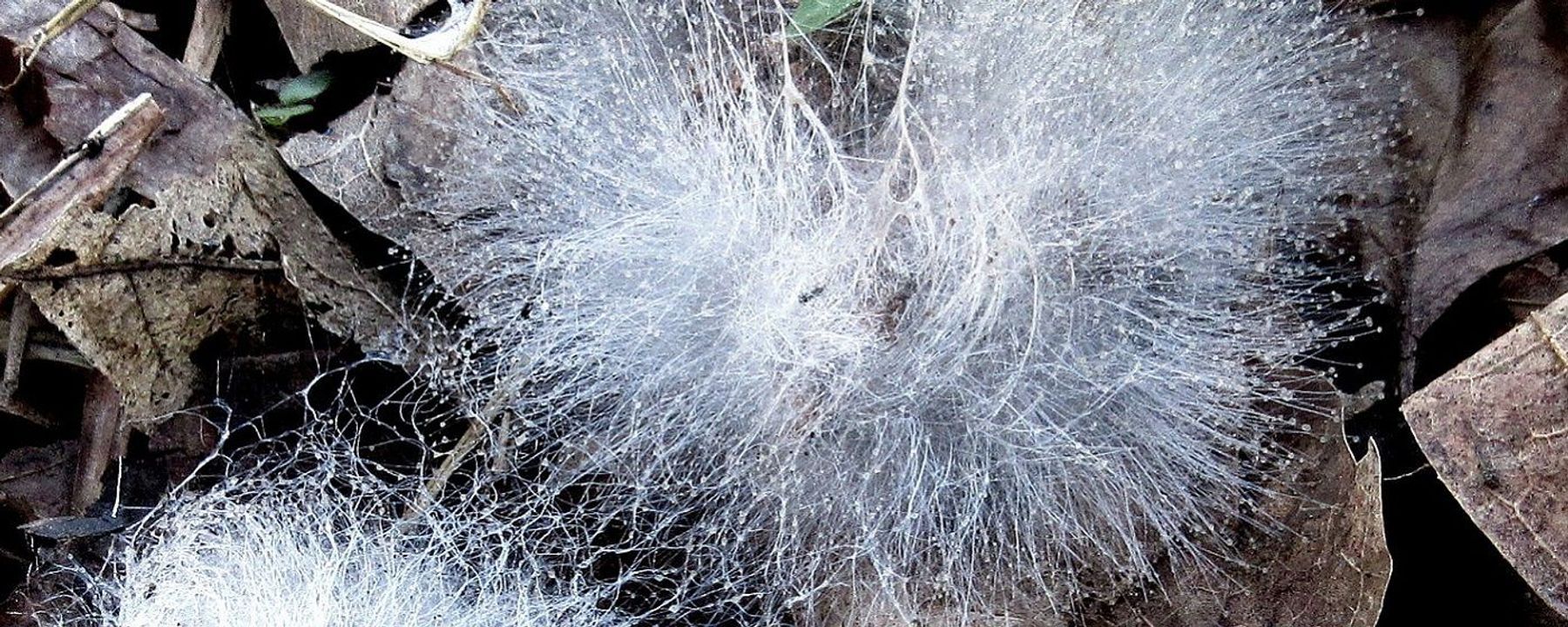Welcome to DU!
The truly grassroots left-of-center political community where regular people, not algorithms, drive the discussions and set the standards.
Join the community:
Create a free account
Support DU (and get rid of ads!):
Become a Star Member
Latest Breaking News
Editorials & Other Articles
General Discussion
The DU Lounge
All Forums
Issue Forums
Culture Forums
Alliance Forums
Region Forums
Support Forums
Help & Search
Science
Related: About this forumNewly Found Proteins Stop Fungal "Bleeding"

Mechanically sensitive proteins called gellins sense and respond to protoplasm flowing out of severed hyphae, quickly sealing up injuries in these root-like structures of fungi.
Viviane Callier
Nov 12, 2020
Mycelium is the fabric of fungal populations: fungi produce thread-like roots called hyphae, which branch and fuse with one another to form a vast, interconnected network—the mycelium. It allows fungi to grow rapidly, transport nutrients, and even share information about the local environment over long distances. The network is also vulnerable; a wound could lead to catastrophic bleeding of protoplasm that can lead to death. While some fungal species separate their filaments into compartments with septal walls that can limit leakage, other fungi do not make any walls, and mycologists haven’t known how they respond to an injury.
Now, a team at the National University of Singapore has discovered their secret: large, mechanosensitive proteins called gellins that have not been described before. When a hyphal filament is injured, the pressurized liquid protoplasm inside the hyphae gushes out. Immediately, gellins inside the hyphae respond to the shear stress of the protoplasm flow by quickly crosslinking, unfolding, and sticking to each other and to cell membranes. The crosslinked gellins form a gel plug at the site of injury almost instantaneously, preventing the fungus from losing all of its protoplasm, evolutionary cell biologist Greg Jedd of the National University of Singapore and colleagues report in Current Biology on November 12.
“What’s super neat about the gellins is that you’re using a physical cue to drive phase separation,” says cell biologist Amy Gladfelter at the University of North Carolina, Chapel Hill who was not involved in the study. That is, shear stress of the rapid flow of protoplasm at the injured site triggers the gellins to unfold and crosslink, creating two distinct phases in the protoplasm—liquid and gel. “There aren’t too many examples of that.”
The project started when Jedd observed that injuries in Phycomyces blakesleeanus and Mucor circinelloides, two fungal species that do not make septal walls, triggered a rapid gelation response that stopped the protoplasm from leaking out. Suspecting that this response was mediated by a large polymer, the researchers ground up the cells and used protein electrophoresis to identify the large proteins inside the filaments. They called these proteins gellins—there are two kinds, gellin A and gellin B—and identified the genes that encode them. Finally, they used CRISPR to eliminate both types of gellins from Mucor circinelloides. When fungi lacking gellins were injured, they bled out into a protoplasmic puddle and died, confirming that gellins play a key role in sealing up breaks.
More:
https://www.the-scientist.com/news-opinion/newly-found-proteins-stop-fungal-bleeding-68141?utm_campaign=TS_DAILY%20NEWSLETTER_2020&utm_medium=email&_hsmi=99803857&_hsenc=p2ANqtz--DrLJZt-HquAgMiHqyp3FUEvU8rnmxtlal0K3mcvJTzXFTABmawzBhLYmAwH6NWV9cvyJyI6sOXlxmV3lxiEqN7JUynQ&utm_content=99803857&utm_source=hs_email
2 replies
 = new reply since forum marked as read
Highlight:
NoneDon't highlight anything
5 newestHighlight 5 most recent replies
= new reply since forum marked as read
Highlight:
NoneDon't highlight anything
5 newestHighlight 5 most recent replies
Newly Found Proteins Stop Fungal "Bleeding" (Original Post)
Judi Lynn
Nov 2020
OP
I wonder how similar these are to the materials in self-sealing fuel tanks ...
eppur_se_muova
Nov 2020
#1
eppur_se_muova
(41,331 posts)1. I wonder how similar these are to the materials in self-sealing fuel tanks ...
something to look up later. Could be another case of "Nature thought of it first".
CatLady78
(1,041 posts)2. K&R.nt
Last edited Mon Dec 28, 2020, 07:03 AM - Edit history (1)
